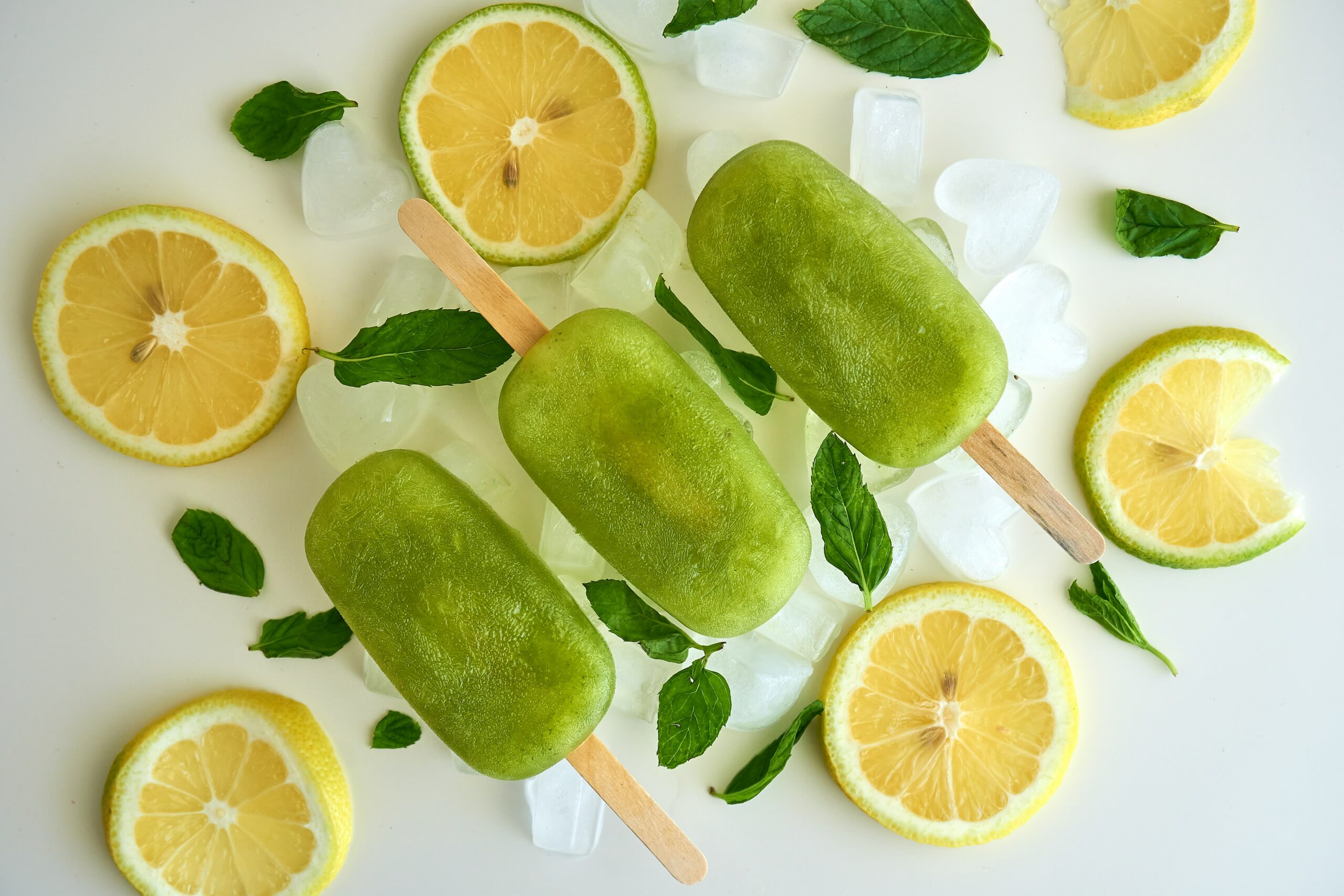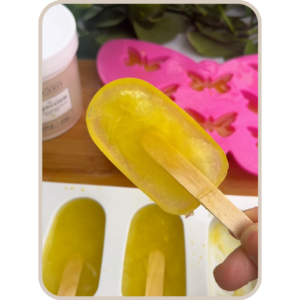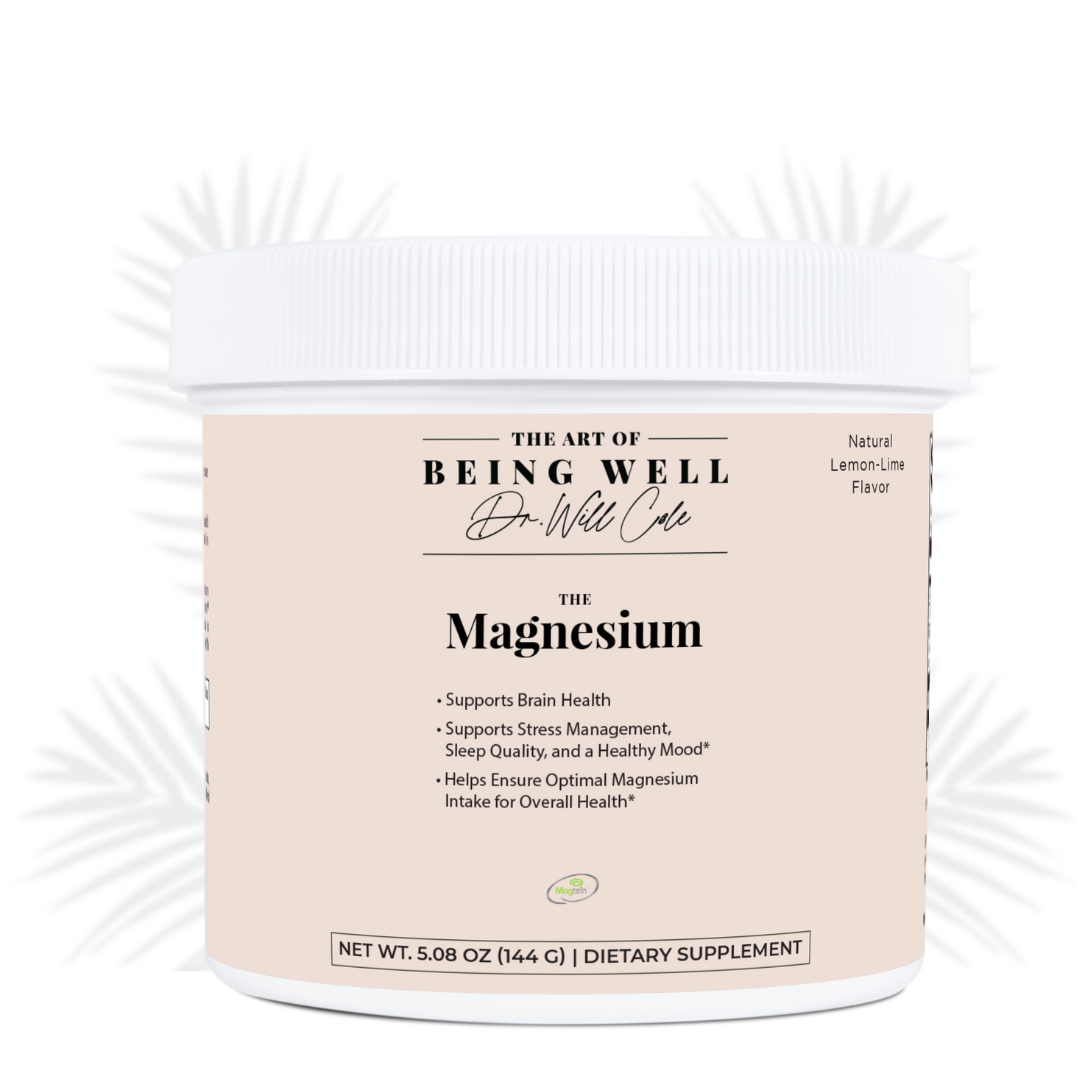The 15 Most Hydrating Foods And Beverages To Try This Summer

Drinking a lot of water when it’s hot is great, but adding these water-rich foods can help keep dehydration at bay:
- Cucumber
- Lettuce
- Coconut water
- Celery
- Zucchini
- Tomatoes
- Asparagus
- Watermelon
- Strawberries
- Cantaloupe/honeydew
- Peaches
- Pineapple
- Herbal tea
- Bone broth
- Popsicles
Proper hydration helps your body perform at its best. It aids in digestion, circulation, and temperature regulation. It supports kidney health and fights fatigue. Getting enough water is especially important in the summer when we sweat out more of our body’s water weight.
I like getting creative with my hydration sources in the summer months, especially when motivation is lacking for complicated meals. This list includes my favorite hydrating snacks and water alternatives to boost your daily water intake.
1. Cucumber (96% Water)
It doesn’t get much more hydrating than cucumbers! They’re a modest source of potassium and magnesium and offer the side benefit of a cooling effect on sunburned skin. (1) I like adding cucumber slices to my water or chopped up in salads for some crunch.
2. Lettuce (94-96% Water)
Lettuce is a great source of fiber, a key component of gut health. Iceberg lettuce has the highest water content, but darker leafy greens pack more nutrients like vitamin K and folate. Choose your style based on the meal. Butter lettuce and romaine are great for wraps and plant-based diets.
3. Coconut Water (95% Water)
Coconut water is an electrolyte-rich beverage that can replenish essential minerals lost through sweating. That includes potassium, a nutrient that helps prevent muscle spasms and cramps. All of that makes it a great sports drink alternative after workouts or as a base for smoothies. (2)
LISTEN: Longevity Secrets, Hydration Hacks, Brain Optimization + Adaptogens | Chervin Jafarieh
4. Celery (95%)
Celery’s hydrating effects come with added fiber that promotes healthy digestion, regular bowel movements, and overall gut health. (3) I like dipping celery sticks in hummus or nut butter, but they’re a healthy addition to your morning green juice, too.
5. Zucchini (95%)
Zucchini is a great source of vitamins like vitamins A and C and potassium, all key to electrolyte balance. (4) Take advantage of the season for zucchini and other summer squash by swapping out your regular pasta for zucchini noodles, or zoodles, or adding it chopped to pasta sauce.
6. Tomatoes (93-95%)
Tomatoes are rich in lycopene, an antioxidant associated with a lower risk of heart disease and cancer and skin protection from sun damage. (5) Choose larger ones for a higher water content over cherry or grape varieties. Enjoy them in salads, salsas, or as a topping for sandwiches.
7. Asparagus (93%)
Asparagus is rich in asparagine, an amino acid with diuretic properties that can help flush out excess fluids and toxins. Animal trials show it may also have a positive effect on fatigue, which is good news for summer workouts. (6) Eat the veggies sauteed as the perfect side.
8. Watermelon (92%)
This summer staple isn’t just a delicious treat with a low calorie density. It’s packed with vitamin A, vitamin C, and the antioxidant lycopene. (7) Electrolytes like sodium, potassium, and magnesium enhance its hydration effects. Try it with your skewers or salads at the next barbecue.
9. Strawberries (91%)
These are one of my favorite hydrating foods for summer because they’re rich in antioxidants, calcium, and vitamin C. Both support collagen production and skin health when fighting the effects of dehydration on both. (8) Strawberries are great on their own or with summer desserts.
10. Cantaloupe & Honeydew (90%)
Watermelon is at the top of hydration pile, but other melons aren’t far behind. Eating these fiber-rich fruits is comparable to drinking a half-cup of water. They’re popular in a fruit salad, but you can get creative by pairing them with savory herbs, low-fat cheese, or with a dash of sea salt.
11. Peaches (89%)
Much like some of the other water-rich foods and fresh fruits on this list, peaches help your body replenish fluids with their high electrolyte activity and potassium content. Summertime is peach season, so put them in everything from your salads to your smoothies to your salsas.
12. Pineapple (85%)
Dehydration can mean disaster for your gut health. Pineapple counteracts those effects with high levels of the anti-inflammatory bromelain, an enzyme linked to lowering gut-specific inflammation. (9) I like to eat it fresh and by the bowlful.
13. Herbal Tea
Herbal tea is mostly water, so treat it as a water alternative for your hydration needs, especially during periods of fasting. Health benefits depend on the type, but go for caffeine-free if you want something versatile throughout the day. Peppermint, chamomile, and hibiscus are delicious iced.
14. Bone Broth
Bone broth is a great source of electrolytes, good for healthy skin, hair, and nails, and packed with nutrients for immune system and joint health. Add it to your summer gazpacho soups, dilute your fruit juices, or add it wherever water or stock is needed in recipes.
15. Popsicles
Are popsicles good for hydration? Homemade popsicles that skip out on unnecessary sweeteners and additives are a great hydration option when you crave something sweet! I like them loaded up with whole foods like watermelon, strawberries, citrus fruits, and coconut water.
Note: Missing out on the health benefits of probiotics? Add some kefir to your frozen treats. They’ll be a little creamier and better for your gut microbiome.
Make My Magnesium Chill-Out Popsicles
My chill-out popsicles are designed to help you beat the heat, fight dehydration, and stay relaxed no matter what your busy summer schedule has in store for you.
Ingredients
- Juice of 1 large lemon
- Juice of 1 small lime
- 1 ½ cups coconut water
- 2 tablespoons pure maple syrup (optional)
- 2 scoops of The Magnesium
Directions
- Whisk ingredients together until they’re smooth and completely dissolved.
- Distribute liquid evenly into popsicle molds.
- Freeze overnight.
- Remove when completely frozen and enjoy!
Hydration is so important to overall wellness, but it goes beyond drinking enough glasses of water. If you’re interested in a functional approach to your health, I provide health consultations for people around the globe through my telehealth clinic. Schedule a consultation today.
Read Next: 14 Natural Remedies to Get Rid of Cold Sores Fast + Keep Them Gone
Shop This Article
The Magnesium is a carefully-formulated supplement to boost your body’s magnesium levels and support optimal brain health. Better brain health means better sleep, lower stress, and a healthier mood.
FAQs
View More At Our Store
Purchase personally curated supplements
and Dr. Will Cole’s books!

The information on this website has not been evaluated by the Food & Drug Administration or any other medical body. We do not aim to diagnose, treat, cure or prevent any illness or disease. Information is shared for educational purposes only. You must consult your doctor before acting on any content on this website, especially if you are pregnant, nursing, taking medication, or have a medical condition.
Our content may include products that have been independently chosen and recommended by Dr. Will Cole and our editors. If you purchase something mentioned in this article, we may earn a small commission.

BY DR. WILL COLE
Dr. Will Cole, DNM, IFMCP, DC is a leading functional medicine expert who consults people around the globe, starting one of the first functional medicine telehealth centers in the world. Named one of the top 50 functional and integrative doctors in the nation, Dr. Will Cole provides a functional medicine approach for thyroid issues, autoimmune conditions, hormonal imbalances, digestive disorders, and brain problems. He is also the host of the popular The Art of Being Well podcast and the New York Times bestselling author of Intuitive Fasting, Ketotarian, Gut Feelings, and The Inflammation Spectrum.

Gut Feelings
Healing The Shame-Fueled Relationship
Between What You Eat And How You Feel




